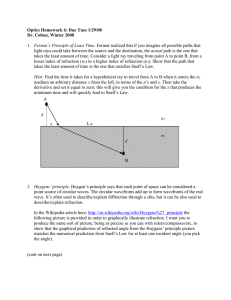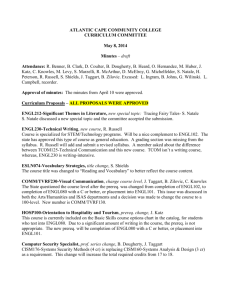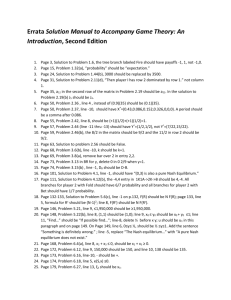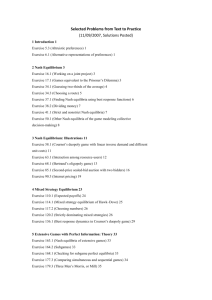Ayman Mourad
advertisement
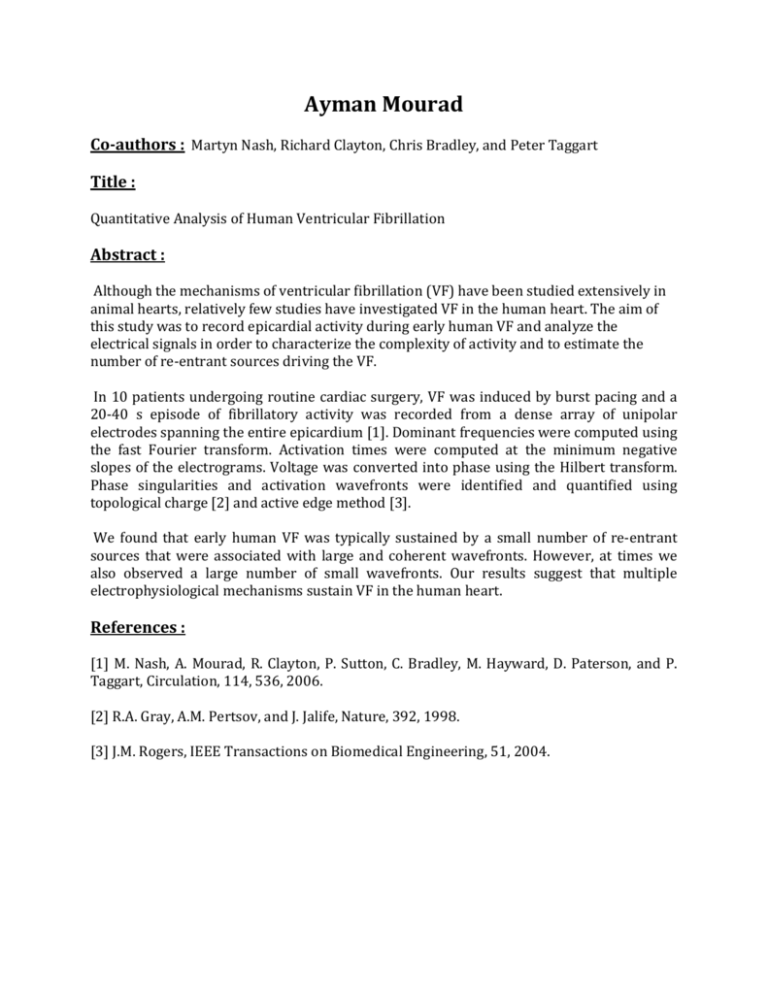
Ayman Mourad Co-authors : Martyn Nash, Richard Clayton, Chris Bradley, and Peter Taggart Title : Quantitative Analysis of Human Ventricular Fibrillation Abstract : Although the mechanisms of ventricular fibrillation (VF) have been studied extensively in animal hearts, relatively few studies have investigated VF in the human heart. The aim of this study was to record epicardial activity during early human VF and analyze the electrical signals in order to characterize the complexity of activity and to estimate the number of re-entrant sources driving the VF. In 10 patients undergoing routine cardiac surgery, VF was induced by burst pacing and a 20-40 s episode of fibrillatory activity was recorded from a dense array of unipolar electrodes spanning the entire epicardium [1]. Dominant frequencies were computed using the fast Fourier transform. Activation times were computed at the minimum negative slopes of the electrograms. Voltage was converted into phase using the Hilbert transform. Phase singularities and activation wavefronts were identified and quantified using topological charge [2] and active edge method [3]. We found that early human VF was typically sustained by a small number of re-entrant sources that were associated with large and coherent wavefronts. However, at times we also observed a large number of small wavefronts. Our results suggest that multiple electrophysiological mechanisms sustain VF in the human heart. References : [1] M. Nash, A. Mourad, R. Clayton, P. Sutton, C. Bradley, M. Hayward, D. Paterson, and P. Taggart, Circulation, 114, 536, 2006. [2] R.A. Gray, A.M. Pertsov, and J. Jalife, Nature, 392, 1998. [3] J.M. Rogers, IEEE Transactions on Biomedical Engineering, 51, 2004.

